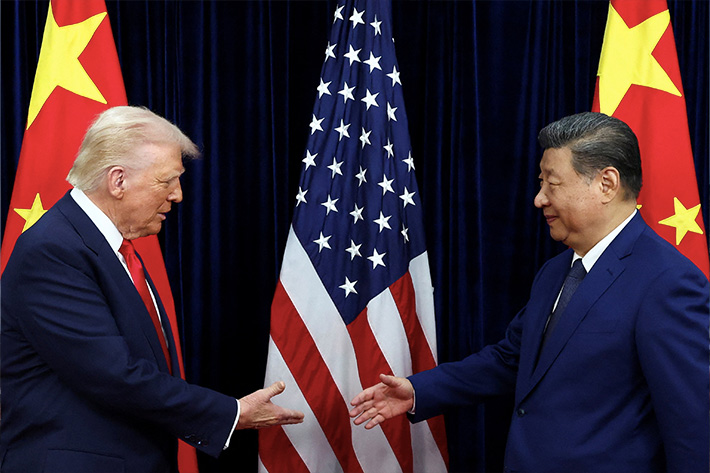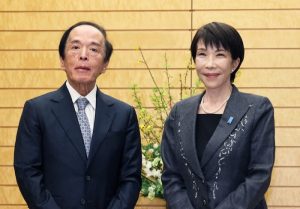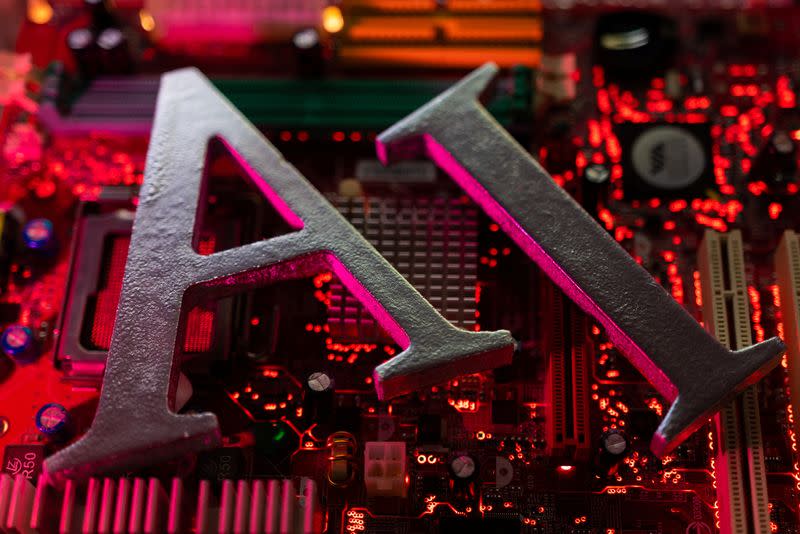The Trump Administration will likely postpone its plans to impose 100% tariffs on imported semiconductors, people familiar with the matter told Reuters, with some saying the delay is part of an effort to avoid a fresh flare-up in tensions with China.
The planned tariffs were expected to have a broad impact on chipmakers across Asia, but especially China, whose top chipmakers – Semiconductor Manufacturing International Corporation (SMIC) and Huawei – manufacture chips that power the huge amount of electronics that Chinese firms sell in the US.
However, Trump aides are now taking their time on the tariffs, according to messages officials have relayed to stakeholders in government and private industry, people with direct knowledge of the matter told Reuters.
Also on AF: China Holds ‘Heavy’ Cards in High Stakes Rare Earth Power Play
Washington is aiming to avoid a rupture with Beijing over trade issues and prevent a return to a tit-for-tat trade war, which could once again disrupt the already uncertain flow of critical rare earth minerals to the US, the people said. They cautioned that no decision is final until the administration signs off on it, and triple-digit tariffs could still be imposed at any time.
Over the last several months, Washington officials have reportedly been saying privately that the administration would soon roll out the tariffs it announced in August, but the White House will not comment publicly on the issue now.
“The Trump Administration remains committed to using every lever of executive power to reshore the manufacturing that’s critical to our national and economic security,” White House deputy press secretary Kush Desai said. “Any anonymously-sourced reports suggesting otherwise are simply fake news.”
A Commerce official added: “There is no change in department policy regarding semiconductor 232 tariffs.”
Neither official would specify how soon the tariffs, which have been threatened since the early days of the Trump Administration, would be finalized, nor did they offer any other details.
Delicate trade truce
The Chinese Embassy in Washington said that cooperation between the two countries on semiconductors remains the best approach.
“We welcome the US to work with China to implement the consensus reached at the Busan summit between the two heads of state, create a favourable environment for mutually beneficial cooperation between companies from both sides, and jointly maintain the stability of the global semiconductor supply chain,” spokesperson Liu Pengyu said.
Trump is trying to maintain a delicate trade truce with China, a top manufacturer of both semiconductors and devices powered by them. Last month, the US President met his Chinese counterpart Xi Jinping in Busan, South Korea, and reached an agreement to set aside their trade issues, for now.
During those conversations in Korea, US officials nonetheless warned their Chinese counterparts that they could take national security steps in the coming months that Beijing might find objectionable, according to two people familiar with those conversations.
The potential delay in tariffs also comes at a time when Trump is facing increasing angst at home over rising consumer prices ahead of the holiday shopping season. Hiking taxes on imported semiconductors could raise consumer costs on the gadgets they power, from refrigerators to smartphones.
The chip tariffs were a centrepiece of Trump’s economic agenda at the time of his election. Trump has bet that tariffs can revive domestic factory jobs lost over decades to other countries, including China.
In April, the Trump administration announced investigations into imports of pharmaceuticals and semiconductors as part of a bid to impose tariffs on them, arguing that extensive reliance on their foreign production poses a national security threat.
Meanwhile, tariffs on pharmaceutical imports went into effect last month.
- Reuters, with additional editing by Vishakha Saxena
Also read:
Rare Earth And The US-China Powerplay
Taiwan Shoots Down US Push For 50-50 Chip Production Deal
US Ponders Tariff to Cut ‘Over-Reliance on Top Chips From Taiwan’
US Negotiating a Chips-For-Protection Deal With Taiwan: Lutnick
Trump Cuts US Tariffs to 47%, Xi Vows to Ease Rare Earth Curbs
China Making Exports Of Rare Earth Magnets ‘Increasingly Difficult’
US May ‘Extend Tariff Truce’ If China Delays New Rare Earth Rule
























